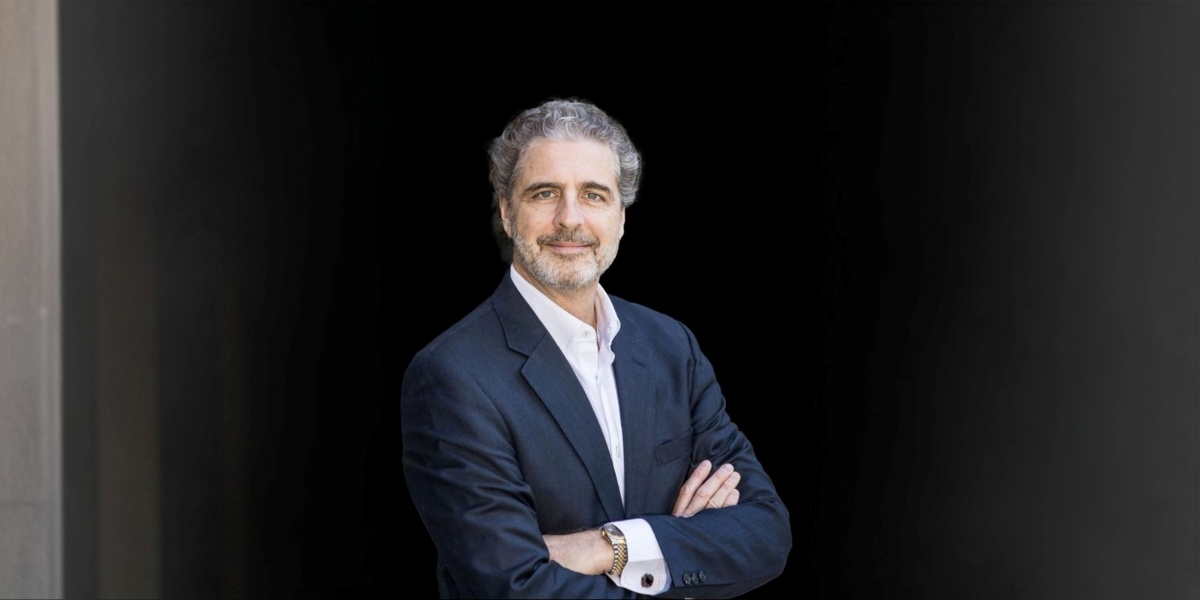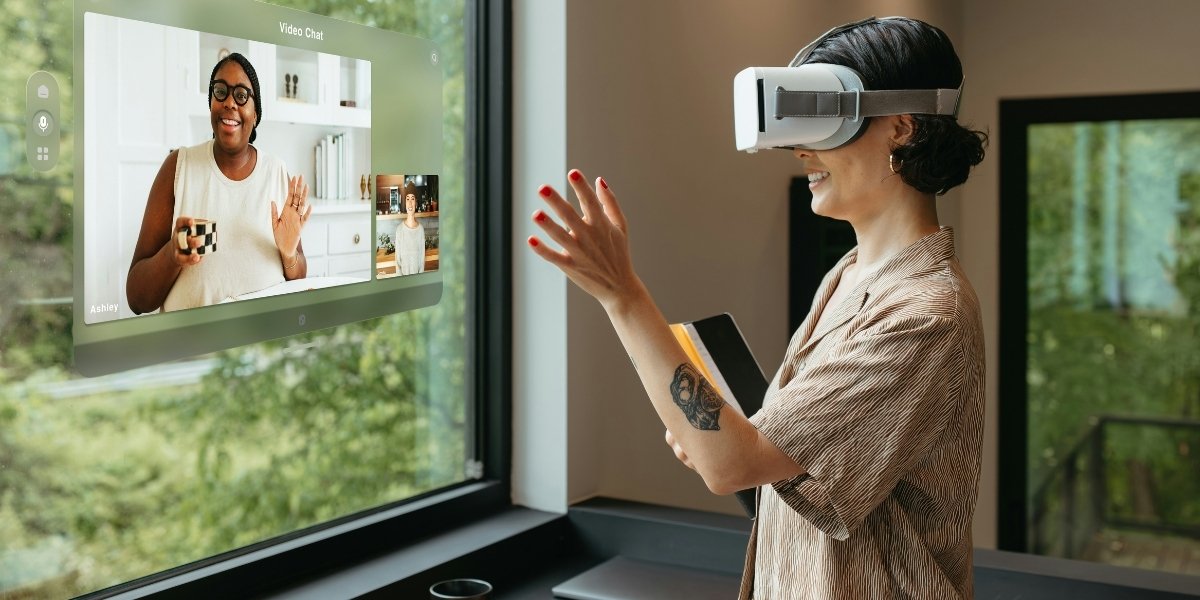By: Ryan Tate
As artificial intelligence continues to reshape every corner of modern life, one of its most profound frontiers lies in mental health. For psychiatrist and serial healthcare innovator Bruce Alan Kehr, M.D., founder and CEO of HoloMD, AI isn’t about replacing clinicians; it’s about extending human compassion and clinician expertise through technology.
With decades of clinical experience and a career defined by empathy-driven innovation, Dr. Kehr is leading a national movement to modernize psychiatry while attempting to preserve its core values. His work with HoloMD, a patent-pending, human-supervised AI platform for continuous patient monitoring, could mark the beginning of a new era in behavioral health care — one that’s both scalable and deeply personal.
A Psychiatrist With a Mission
For Dr. Kehr, the mission behind HoloMD is rooted in a lifetime of understanding what it means to feel unseen. He grew up in a family touched by profound loss. His baby brother’s death and his mother’s ensuing mental illness shaped his earliest view of suffering.
“Those experiences gave me a deep empathy for people in pain, who feel all alone as they struggle with it,” Kehr said. “They also taught me that true healing begins when people feel genuinely seen, listened to, understood, and cared for.”
Those lessons guided Kehr’s career path from medical school to private practice and beyond. He went on to found Potomac Psychiatry, a nationally recognized practice known for pioneering Root Cause Psychiatry, a model that integrates genetics, neurobiology, gut microbiome science, immunology, cell biology, and psychotherapy to uncover the underlying causes of mental illness.
HoloMD is the culmination of that journey and his response to the accessibility gaps he witnessed firsthand in modern psychiatry.
Closing the Gaps Between Visits
The behavioral health crisis in the U.S. is growing: psychiatrists are overextended, patients often wait months for appointments, and the time between visits can create significant challenges. Only 20% of psychiatrists are accepting new patients.
HoloMD aims to address some of these challenges. At its core is Dr. Holo™, a virtual psychiatric assistant that interacts with patients daily through secure, empathy-mapped check-ins. The AI listens, learns, and identifies changes in symptoms or mood, and every conversation is reviewed by human clinicians. This “human-in-the-loop” design, Dr. Kehr says, is one of HoloMD’s defining features. A second defining feature is the forty years of clinical experience from Potomac Psychiatry that are used to help inform the development of Dr. Holo and to support patient safety.
“AI can process information at scale, but only humans can experience emotion,” Kehr said. “AI has never experienced the birth of a baby or lived through the death of a friend or family member.” “By blending AI and human-based insights, we aim to provide doctors with actionable insights while helping every patient feel cared for.”
In some cases, the results have been encouraging. For example, in one instance, a patient’s daily HoloMD report flagged new thoughts of self-harm. Within hours, the system’s human reviewer escalated the issue to the treating psychiatrist, who was able to intervene promptly. In traditional care, this kind of warning might have been delayed for weeks.
Empowering Clinicians, Elevating Care
While HoloMD intends to improve safety for patients, it also offers a transformative experience for clinicians. The platform automatically summarizes patient interactions into concise, visit-ready reports that highlight trends in mood, adherence, and side effects that can be reviewed with the patient during their session.
“For providers, it’s like having a second set of eyes and ears,” Kehr says. “Instead of spending the first 15 minutes of a session trying to catch up, they can start with insight and empathy.”
For health systems, the benefits could extend beyond care quality. The platform is fully HIPAA- and HITECH-compliant, aligns with Medicare Remote Therapeutic Monitoring (RTM) billing codes, and has several provisional patents pending, which may provide a competitive edge in an increasingly crowded digital health space.
A Leadership Team With Proven Success
In October, HoloMD announced the appointment of med-tech veterans Jim Pearson as Executive Chairman and Joseph Mark to its Board — both of whom were instrumental in scaling Suros Surgical Systems and NICO Corporation. Their arrival signals a new phase of growth for HoloMD, combining operational excellence with Dr. Kehr’s clinical vision.
“Jim and Joe bring a 20-year track record of turning hard clinical challenges into scalable businesses that deliver better care and positive returns for investors,” Kehr said about the announcement. “With their leadership and our mission, we hope to make a national impact.”
Humanizing AI at Scale
HoloMD’s differentiator lies in its humanity. While many digital mental health solutions rely on fully automated algorithms, HoloMD’s model insists on human oversight of every communication between Dr. Holo and the patient. That approach may allow the technology to extend empathy safely and ethically while maintaining the trust essential in psychiatry.
Kehr’s philosophy is simple. Technology should empower clinicians, not replace them. AI’s real value comes from helping physicians understand patients more deeply, not just more quickly, leading to better decision-making and more informed care plans.
Beyond its clinical innovation, HoloMD also reflects Kehr’s broader belief that mental health care should be equitable. The platform supports Medicaid and Medicare patients and is designed to serve community systems that care for vulnerable populations, including the homeless.
“Equity must be baked into the foundation of innovation,” Kehr said. “Everyone deserves access to advanced mental health care, not just those who can afford it.”
The Future of Compassionate Care
Dr. Kehr’s vision for HoloMD extends far beyond technology. It’s about redefining what psychiatric care might look like in the 21st century: continuous, compassionate, and connected.
“We’re building a system where no patient slips through the cracks,” he said. “Every psychiatrist should have the tools to truly see their patients. At the same time, data and empathy should work together to heal at scale.”
With a clinician’s heart and an innovator’s mind, Dr. Bruce Alan Kehr, M.D., is demonstrating that the future of psychiatry could be about deepening human connection, not replacing it.
Disclaimer: The information provided in this article is intended for general informational purposes only and does not constitute medical advice. While HoloMD represents an innovative approach to psychiatry, its effectiveness and impact may vary depending on individual circumstances. Always consult a licensed healthcare provider for personalized medical guidance. The views and opinions expressed by Dr. Bruce Alan Kehr are based on his professional experience and expertise, and results may differ for each patient.









